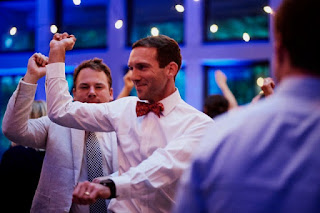 |
| What does The Very Hungry Caterpillar have to do with the 500th Anniversary of the Protestant Reformation? |
The plot chronicles the week-long journey of a caterpillar who eats more and more each day. Sunday through Friday provides an opportunity for the little creature to compound its appetite until on Saturday he overdoes it.
As the author put it, “On Saturday, he ate through one piece of chocolate cake, one ice-cream cone, one pickle, one slice of Swiss cheese, one slice of salami, one lollipop, one piece of cherry pie, one sausage, one cupcake, and one slice of watermelon.
“That night he had a stomach ache.”
On Sunday though the caterpillar eats a small meal and then comes a powerful transformation. For several weeks the caterpillar rests inside a cocoon before on the final page it is transformed into a beautiful butterfly. Some will point out how this does not conform to the actual life-cycle of a butterfly, but I’m less concerned about how this. To me this kids’ story has connections to today’s Gospel lesson and today Gospel lesson points us toward the Kingdom of God and on today of all days is that not where our focus is drawn?
You may not be aware of the significance of today, but 500 years ago Martin Luther the catalyst of the Continental Reformation nailed his 95 Theses to the front door of Wittenberg Castle church. What happened next? Years of struggle as the Body of Christ attempted to figure out the path to the Kingdom of God here on earth. Today, we seem to be in the midst of another big reformation. But what does all of this have to do with a caterpillar and what does this have to do with Gospel and what does this have to do with the Kingdom of God? Patience!
What is the Kingdom of God like? It is like a caterpillar who after a stomach ache and a chrysalis period becomes a beautiful butterfly. What is this butterfly like? Well, this butterfly is like a mustard seed, which seems to be a disregarded, tiny seed, but after some struggle grows into the greatest of all shrubs. What is the growth of this bush like? It is like yeast, which can be found just about anywhere—just ask some French chefs who find it in spider webs—and yet it helps to leaven all things. What is the leavening of a loaf like? It is like the Kingdom of God, which strikingly enough goes through great transformation—even during hard times—becomes great from something small, may be found almost anywhere, and all the while has the power to transform this world!
These parables—stories about the Kingdom of God—help me to have hope in something powerful happening even though I may not be able to see it now. I cannot understand how a butterfly comes from a caterpillar who eats too much. I don’t get the growth of a big shrub from a tiny seed. I cannot comprehend how someone figured out that yeast would help to leaven a loaf. Nor, do I get how a man 500 years ago nailing his thoughts on the door of a church would lead to one of the greatest shifts in the history of the Body of Christ. Yet, all of these are examples of how the Kingdom of God is hidden and unexpected while at the same time being ubiquitous and simple.
Maybe what is so powerful about all of these examples is that each one did not start with the final product apparent, nor was it possible for the transformation to happen in a vacuum. The caterpillar required food. The seed required soil, light, and water. The yeast required flour, water, kneading, and heat. The Kingdom of God likewise does not happen without the combination of multiple elements—a coming together of that which is here and easily visible with that which we cannot observe with our senses. The Kingdom of God happening here calls for a combination of our human gifts (as humble as they may be) with the overwhelming gifts of God. Martin Luther understood that when he pointed to the primacy of Holy Scripture and the belief that it is God who saves us not our own good works. He pointed with his own human abilities to the gifts of transformation that God makes real in Christ Jesus.
Today, as we look back 500 years we may feel as though the Body of Christ, the Church, exists at another big crossroad. A modern day period of reformation, if you will. We may be scared. We may not know what will happen next. We may worry as headlines read: The Church is Dying! However, we must have faith that the butterfly will emerge. We must trust that the shrub is inside the seed. We must know in our hopeful hearts that the loaf will be leavened by the yeast. We must remember that those who first followed Jesus did not know what would happen on Good Friday afternoon as they saw their Lord betrayed, beaten, and dying. And yet, in the end God’s love transformed that hopeless day into the sign, symbol, and way leading to God’s greatest triumph. We do not know how this will end, but as caterpillars, seeds, yeast, and Our Savior Christ show us the Kingdom of God is always being reformed, is always about transformation, and is always full of surprises.




